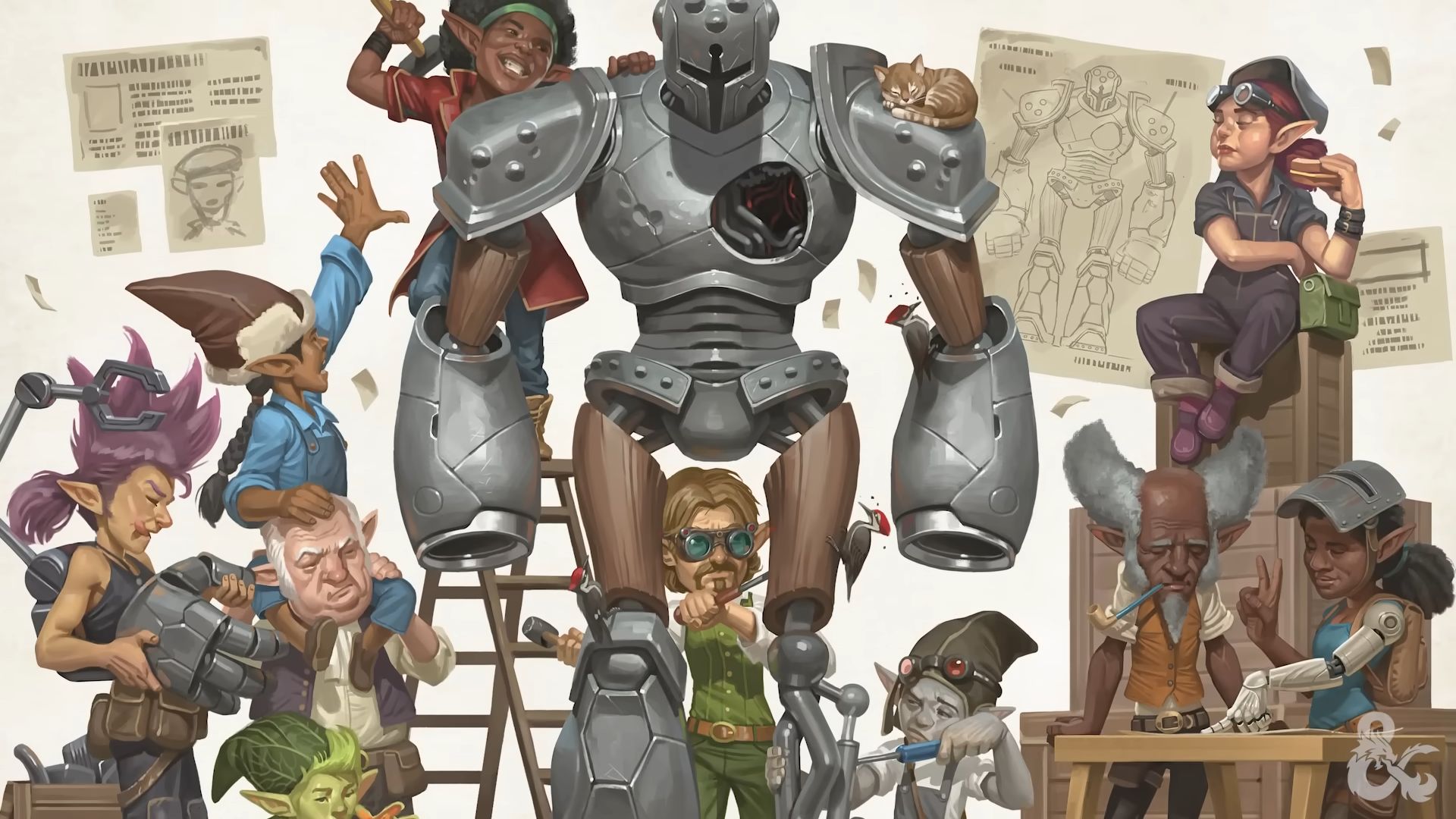Crafting in crafting games may suck, but it seems surprisingly decent in the updated rules for Dungeons & Dragons of all things
I've got a +3 in punching trees.

I agree with Lauren Morten, who wrote that somehow the worst part of crafting games is the crafting. I've never interacted with a crafting bench and thought it was a worthwhile use of my time, and punching trees is boring. I noped right out of Valheim at the point where it expected me to care about making roof tiles that were the right shape to assemble over my drafty hovel.
And yet, looking over the recent explanation of the crafting rules in the 2024 Players Handbook for Dungeons & Dragons 5E, I think they might be good actually? Certainly an improvement over the previous downtime rules for making things in D&D, which required such a massive investment of time I could see the light in my players' eyes die as I was explaining them.
Now anyone with a herbalism kit and the relevant proficiency will be able to craft, for instance, their own potions of healing. It'll require "a full day's work and 25 GP of raw magic goo" for each one, but that's a much more interesting use of the tool proficiency than just being able to identify poison and find plants. (They can also make antitoxins, healer's kits, and candles now.)
As a sidebar, drinking those potions now officially costs a bonus action rather than a full action—a house rule so common it was used in Baldur's Gate 3, and which it's nice to see the core rules adopt.
Meanwhile, adept users of painter's supplies will be able to make their own holy symbol or druidic focus. Crafting spell scrolls is cheaper and crafting armor will be twice as fast, and the Crafter feat—one of the new origin feats that can be taken as early as level one—can be used to make certain useful items overnight, like grappling hooks, nets, torches, and rope, should you not already have 50 feet of it that you forgot about written down on your character sheet already.
Tool proficiencies have been made more useful in general, with suggestions and difficulty classes for actions like using mason's tools to sneakily look into a secret room before you crack the door open or using alchemist supplies to start a fire. Those are the kind of things a generous Dungeon Master would let you do already, but it's nice to have them codified with a DC so you don't have to adjudicate one on the fly. Being proficient in the sleight of hand skill also gives advantage on the thieves' tools check you make to pick a lock in the 2024 rules.
I may ignore crafting systems when they're bolted onto RPGs like Fallout 4, but I will definitely be making use of these rules in my next game of D&D. I absolutely know there will be a player who wants to find that "raw magic goo" without having to pay 25 of their hard-earned gold pieces for it, and by god I'm going to make them go through gross ooze hell to find it—and then remind them where it came from every time they need 2d4+2 hit points in a hurry from then on.
The biggest gaming news, reviews and hardware deals
Keep up to date with the most important stories and the best deals, as picked by the PC Gamer team.

Jody's first computer was a Commodore 64, so he remembers having to use a code wheel to play Pool of Radiance. A former music journalist who interviewed everyone from Giorgio Moroder to Trent Reznor, Jody also co-hosted Australia's first radio show about videogames, Zed Games. He's written for Rock Paper Shotgun, The Big Issue, GamesRadar, Zam, Glixel, Five Out of Ten Magazine, and Playboy.com, whose cheques with the bunny logo made for fun conversations at the bank. Jody's first article for PC Gamer was about the audio of Alien Isolation, published in 2015, and since then he's written about why Silent Hill belongs on PC, why Recettear: An Item Shop's Tale is the best fantasy shopkeeper tycoon game, and how weird Lost Ark can get. Jody edited PC Gamer Indie from 2017 to 2018, and he eventually lived up to his promise to play every Warhammer videogame.

